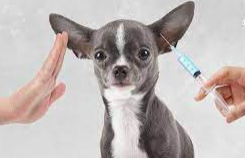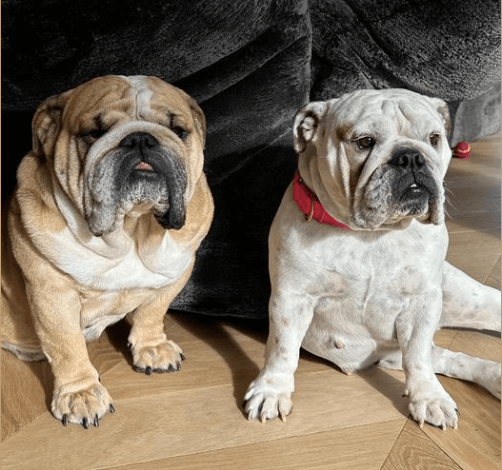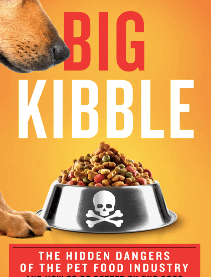The bulldog breed needs our help. They are a special breed and are loving creatures that are notorious for health-issues like autoimmune disease, allergies, interdigital cysts, dermatitis, cherry eye, dysplasia and many more, which contribute to a shortened life-span and health-span. That is devastating. Unfortunately, some of it can be attributed to bad breeding and some of it can be contributed to poor lifestyles. The bulldog breed needs our help and there are things you can do if you are lucky enough to have one in your life. Read on.
Bad breeding has created health problems for the entire breed. According to a study completed by the Royal Veterinary College, the physical features of English Bulldogs including the pushed-in faces, skin folds, and stocky builds puts the breed at increased risk for developing breathing, eye and skin conditions. These researchers analyzed the records of 2,662 English Bulldogs and 22,039 dogs of other breeds. The data concluded that English Bulldogs were twice as likely to be diagnosed with at least one disorder as compared to other dogs, showing predispositions for 24 out of 43 (55.8 percent) specific disorders, which include:
- Skin fold dermatitis (38.12 times greater risk as compared to other breeds)
- "Cherry eye" (i.e. prolapsed nictitating membrane gland) (26.79 times greater risk)
- Mandibular prognathism (24.32 times greater risk)
- Brachycephalic obstructive airway syndrome (19.20 times greater risk)
According to the study's author, Dan O'Neille, MVB, GPCert, PGCertVedEd, FHEA, PhD, FRCVS, "these findings suggest that overall health of the English Bulldog is much lower than that of other dogs" and "...what is most concerning is so many of the health conditions English Bulldogs suffer from, such as skin fold dermatitis and breathing problems, are directly linked to the extreme structure of their bodies that has been selectively bred for" (Source: Veterinarypracticenews).

A lot has changed since the year 1210. The photo on the left is representative of how the breed used to be. They used to literally fight bulls, hence the name bulldog and were thought of as savages. The photo on the right demonstrates how much the breed has changed comparatively. So much and has come far from their bullbaiting days in England.

Now, bulldogs are stocky, squishy, wrinkly chunks who are anything but tough or savage-like. They are generally super chill, hilarious and looking to have a good time with their families.



These physical and temperamental changes made to the breed to make them so popular have occurred rapidly over the last few decades. In order to create this change and do so relatively quickly, breeders used a small pool of bulldogs with desired traits and bred them repeatedly.
Unfortunately, this small pool, also referred to as a founder population, lacks genetic diversity, which is needed to keep the breed healthy. Most bulldogs can be traced back to the same grandparents or great grandparents. Hereditary diseases are passed down to each generation, which is one of the reasons why they are predisposed to illness.
In addition to genetic predisposition, they are typically born via c-section because the heads of the puppies are literally too large to pass through the birth canal due to the massive changes made to the genetic line of recent bulldogs. C-sections are a result of genetic predisposition but are also an environmental factor that hurt the breed. C-sections are used in emergency and elective situations to increase the survival of newborns and or to save the life of the mother or reproductive future. As a result, they aren't exposed to crucial bacteria from the birth canal that help regulate the gut microbiome after birth and throughout their lives.
According to this 2021 study, the delivery mode is a driving factor in altering the gut microbiota during gestation and birth. "Several studies prove the alteration of gut microbiota induced by cesarean section could influence the activation of intestinal epithelial cells and the development of immune system" and "some autoimmune and metabolic disorders may be related to the microbiota dysbiosis in infants caused by cesarean section." From birth, it is most likely that most, if not all English Bulldog puppies will be particularly sensitive to anything and everything in their environments, good and bad, including food, water, exercise, sunlight, vaccines and medications.
We believe that because of these sensitivities due to their birth mode and genetics coupled with environmental factors such as poor nutrition and too many vaccines results in toxic overload and is responsible for many of the diseases bulldogs are notorious for.
Vaccines are not tailored to meet the individual needs of each breed, purebred or not, which is why a 4lb Yorkie gets the same amount of vaccine as a 100 lb Saint Bernard. Vaccines also contain a whole bunch of adjuvants and preservatives to prolong their shelf-life. If you continue to vaccinate each year or every 6 months, or according to how frequently most vets will say, the liver, the main detoxification organ in the body literally becomes bombarded and can no longer function optimally, which creates sickness like allergies, autoimmune disease, cancer etc. The dose determines the poison and ultimately, the more toxins in the body, the more sickness.
As for kibble, it is mass-produced at extremely high temperatures, which increases the amount of Advanced Glycation End products (AGEs) in the body, which is scientifically linked to increased oxidative stress, inflammation, diabetes, cancer and cardiovascular disease. Most kibble is full of fillers and by-products included to extend shelf-life and keep manufacturing costs low.
We believe that this toxic overload from kibble, too many vaccines and limited genetic diversity in the bulldog gene pool is the driver of diseases we see today in bulldogs. They are particularly sensitive to everything. Bobzilla does not recommend vaccines for bulldogs period. You can read more on that here.
So, how can you make a difference?
In order to make said difference, if you have a bulldog already, it is really important that you feed them a nutrient dense diet (no kibble), provide access to fresh water, movement and sunlight and carefully think about when you vaccinate, if you choose to vaccinate at all. If you do decide to vaccinate, please always titer first. Because the breed is so sensitive, taking control of their environment as much as possible will make a difference. While these steps won't eliminate genetic problems with the breed, they will help improve and or maintain the overall health of your bulldog, which is a step in the right direction.
If you are planning to purchase a bulldog puppy, always do your research and purchase only from a reputable breeder even if that means you have to travel or spend more money. A bulldog bred for strong genetic lines will cost on average anywhere from $4,000 - $5,000 and it is important to ask breeders how they choose dogs for breeding. The should be bred based on the following criteria:
- Are healthy and sound and whose close relatives are healthy and sound. The overall impression is always the most important feature. If you have doubts about a dog’s soundness or general health status that dog should not be used for breeding!
- Breathes without effort after exercise and in warm weather and that has a length of muzzle/upper jaw that with margin exceeds the minimum measure described in the breed standard.
- Has sufficient length of neck and a well-developed chest with respect to depth and length.
- Shows sound movements and has no clinical signs associated with the musculoskeletal system.
- Has sound and healthy skin without excessive folds or wrinkles.
- Originates from breeding lines where natural births are markedly more prevalent than the average for the breed.
- Has completed the proposed health assessment (as soon as it is available).
Choosing a puppy from a reputable breeder that follows these guidelines, will help to ensure that you get a healthy puppy who becomes a healthy dog. Over time, if people truly only purchase the healthiest puppies, then more breeders will have to shift their practices to accommodate the demand.
If you need more help on what to feed your dog, please click here. If you need more help on how/when to vaccinate your dog, click here. If your dog is sick and need some guidance on what to do, visit Bobzilla's Healthy & Happy Life Made Simple here.
Donate to Bobzilla.org

$5.00
The veterinary business is business which is not in the business of curing your animal, but Bobzilla's business is. Bobzilla is committed to one hundred percent transparency in all of its scientific research into animal wellness and prevention of disease and one… read more




